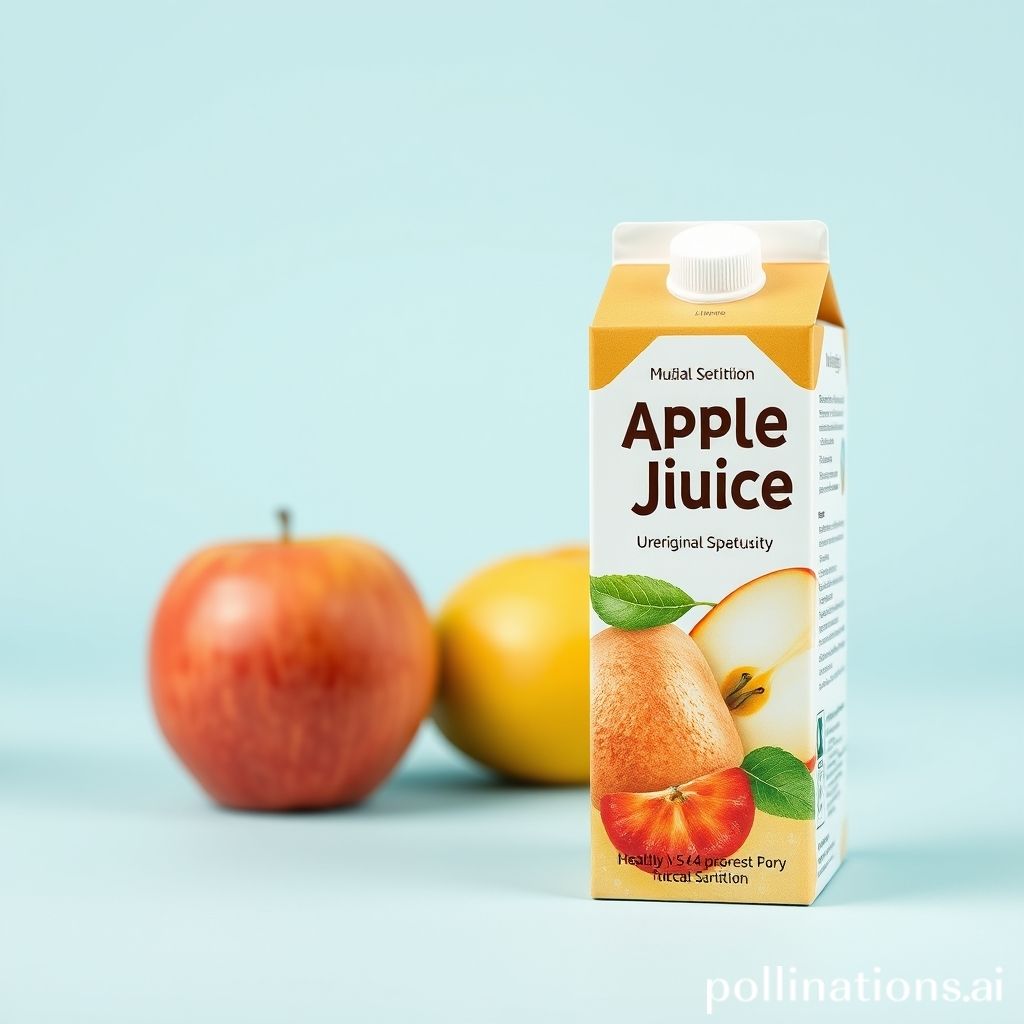Rehydrate Naturally: The Benefits of Apple Juice for Dehydration
Is Apple Juice Good for Dehydration? In terms of treating or preventing dehydration, many people wonder if apple juice is a suitable option. They are seeking information on the effectiveness of apple juice in rehydration and its potential benefits in addressing dehydration symptoms.
This article aims to provide insights into whether apple juice can be considered a good choice for rehydration, exploring its nutritional content and hydration properties. Additionally, research studies on apple juice’s rehydration properties will be examined, along with a comparison to other rehydration options. Other considerations, such as the primary source of hydration and combining apple juice with water, will also be discussed. So, let’s dive in and find out if apple juice is indeed good for dehydration.

Table of Contents
Understanding Dehydration and Its Symptoms
1. Definition of Dehydration
Dehydration is a condition where the body lacks enough fluids to function properly. It occurs when the body loses more fluids than it takes in, leading to an imbalance in electrolytes and water levels.
Dehydration can be caused by factors such as excessive sweating, vomiting, diarrhea, or not drinking enough fluids. It can range from mild to severe, with severe dehydration requiring immediate medical attention.
2. Common Symptoms of Dehydration
Recognizing the signs of dehydration is crucial to prevent further complications. Some common symptoms of dehydration include:
- Thirst: Feeling an intense urge to drink water or other fluids.
- Dry mouth and lips: Noticing a sticky or parched feeling in the mouth and lips.
- Dark-colored urine: Urine appears darker and more concentrated than usual.
- Fatigue and weakness: Feeling tired, sluggish, or lacking energy.
- Dizziness or lightheadedness: Experiencing a spinning sensation or feeling faint.
- Headache: Having a persistent or throbbing headache.
- Dry skin: Noticing dry and cool skin that lacks elasticity.
It is important to note that During apple juice can provide hydration, it should not be the sole source of fluids during dehydration. Severe cases of dehydration may require medical intervention and the consumption of electrolyte-rich solutions specifically designed for rehydration.
Expert Tips: Stay hydrated by drinking fluids regularly, especially during physical activity. Watch for symptoms like thirst, dark urine, and fatigue. Seek medical help for severe dehydration.The Importance of Rehydration
1. Why Rehydration is Crucial for Overall Health
Proper hydration is vital for maintaining overall health and well-being. When the body lacks sufficient water, it can lead to dehydration, which can have severe consequences. Rehydration is the process of replenishing the body’s water and electrolyte levels to restore balance and ensure optimal functioning.
Dehydration occurs when the body loses more fluid than it takes in. This can happen due to factors such as excessive sweating, vomiting, diarrhea, or inadequate fluid intake. If left unaddressed, dehydration can result in fatigue, dizziness, confusion, and even organ failure.
By rehydrating the body, you can prevent these negative effects and maintain proper bodily functions. Water is necessary for digestion, nutrient absorption, temperature regulation, and waste elimination. Staying properly hydrated also supports healthy skin, helps prevent constipation, and aids in weight management.
2. Benefits of Rehydration in Addressing Dehydration Symptoms
Rehydration plays a crucial role in addressing the symptoms of dehydration. When the body is dehydrated, it lacks the necessary fluids to function optimally, leading to various symptoms that can be alleviated through rehydration.
- Restoring Fluid Balance: Replenishing the body’s water levels helps restore fluid balance, preventing further dehydration and reducing symptoms such as dry mouth, thirst, and decreased urine output.
- Improving Energy Levels: Dehydration can cause fatigue and low energy levels. Rehydration provides the body with the energy it needs to perform daily activities and helps combat feelings of tiredness.
- Relieving Headaches: Headaches are a common symptom of dehydration. By rehydrating, you can alleviate headaches caused by fluid imbalances in the body.
- Supporting Cognitive Function: Dehydration can impair cognitive function and affect concentration and memory. Rehydration helps improve brain function and enhances mental clarity.
- Enhancing Physical Performance: Athletes and active individuals need to stay hydrated to perform at their best. Rehydration before, during, and after physical activity can help maintain performance and prevent fatigue.
| Benefits of Rehydration | |
|---|---|
| Restoring Fluid Balance | Prevents further dehydration and reduces symptoms like dry mouth, thirst, and decreased urine output. |
| Improving Energy Levels | Provides the body with energy, combating fatigue and low energy levels. |
| Relieving Headaches | Alleviates headaches caused by fluid imbalances in the body. |
| Supporting Cognitive Function | Improves brain function, concentration, and memory. |
| Enhancing Physical Performance | Aids athletes and active individuals in maintaining performance and preventing fatigue. |
Apple Juice: A Rehydration Option
1. Nutritional Content of Apple Juice
Apple juice is a refreshing beverage that offers various nutrients beneficial for rehydration. It contains the following:
- Vitamin C: Apple juice is a good source of vitamin C. This vitamin plays a vital role in maintaining the body’s immune system and promoting collagen production.
- Potassium: Apple juice contains potassium, an essential electrolyte that helps regulate fluid balance and supports proper muscle and nerve function.
- Antioxidants: Apple juice contains antioxidants like flavonoids and polyphenols. These compounds help protect the body against oxidative stress and inflammation.
- Hydrating Properties: Apple juice has a high water content, which contributes to overall hydration when consumed in moderation.
2. Hydration Properties of Apple Juice
Apple juice can be a suitable option for rehydration due to its hydrating properties. The following factors contribute to its effectiveness:
- Water Content: Apple juice primarily consists of water, making it a hydrating beverage that replenishes fluids in the body.
- Natural Sugars: The natural sugars present in apple juice provide a quick source of energy, aiding in rehydration.
- Electrolytes: Whilst apple juice may not contain high levels of electrolytes, it does provide some essential minerals like potassium, which support hydration.
It is important to note that although apple juice can contribute to rehydration, it should not be relied upon solely in severe cases of dehydration. In such cases, it is recommended to seek medical attention and use proper oral rehydration solutions.

Effectiveness of Apple Juice for Dehydration
1. Research studies on the rehydration properties of apple juice
Several research studies have been conducted to investigate whether apple juice can effectively treat or prevent dehydration. These studies provide valuable insights into the effectiveness of apple juice as a rehydration option.
2. Comparison of apple juice with other rehydration options
Touching on rehydration, apple juice is often compared with other available options. It is important to understand how apple juice stacks up against these alternatives in terms of its effectiveness in treating dehydration. By comparing apple juice with other rehydration options, we can gain a better understanding of its potential benefits and limitations.
2.1. Apple juice vs. water
One common comparison is between apple juice and water. Meanwhile water is the most basic and widely recommended option for rehydration, apple juice offers additional benefits due to its natural sugars and electrolytes. This section will explore the differences and similarities between apple juice and water as rehydration choices.
2.2. Apple juice vs. sports drinks
Sports drinks are often marketed as effective rehydration solutions, especially for athletes. In contrast, comparing apple juice with sports drinks can provide insights into whether apple juice can be a suitable alternative. This section will discuss the differences in composition and potential benefits of apple juice and sports drinks for rehydration.
| Information |
|---|
| Apple juice contains natural sugars that can help replenish energy levels during dehydration. |
| The electrolytes present in apple juice can aid in restoring electrolyte balance in the body. |
| Apple juice may be more appealing and flavorful compared to plain water, encouraging better intake. |
Other Factors to Consider for Rehydration
1. Water: The Best Source of Hydration
Relating to rehydration, water is the top choice. It is crucial for maintaining the body’s fluid balance and preventing dehydration. Water helps replenish lost fluids and keeps the body hydrated throughout the day. Moreover, water has zero calories and is readily available, making it an ideal option for rehydration.
2. Apple Juice and Water Combination for Rehydration
Whilst water is the primary source of hydration, adding apple juice can offer additional benefits. Apple juice contains natural sugars and electrolytes, which can help with rehydration. The natural sugars provide a quick energy boost, Whilst the electrolytes restore the body’s electrolyte balance. Therefore, combining apple juice with water can be a refreshing and effective way to rehydrate.
Notwithstanding, it is important to note that apple juice should not be relied upon solely for rehydration, especially in cases of severe dehydration. It is always recommended to consult a healthcare professional for proper guidance and treatment in such situations. Additionally, individuals with certain medical conditions, such as diabetes, should be cautious with their apple juice intake due to its sugar content.
Conclusion
Based on the information gathered, apple juice can be a beneficial option for rehydration during mild cases of dehydration. Its high water content and natural sugars can help replenish fluids and provide a quick source of energy.
Nevertheless, it should not be solely relied upon for severe dehydration or as a replacement for medical treatment. It is always important to consult a healthcare professional for proper evaluation and guidance in managing dehydration symptoms. Remember to stay hydrated by drinking plenty of fluids, including water, to maintain overall health and prevent dehydration.
FAQ about Apple Juice and Dehydration
FAQ 1: Can apple juice alone treat severe dehydration?
No, apple juice alone cannot treat severe dehydration. Severe dehydration requires immediate medical attention and typically involves intravenous fluid administration to restore lost fluids and electrolytes.
FAQ 2: How much apple juice should be consumed for rehydration?
The amount of apple juice needed for rehydration may vary depending on the individual’s condition and hydration needs. It is generally recommended to consume small, frequent sips of apple juice alongside water or oral rehydration solutions.
FAQ 3: Are there any side effects of drinking too much apple juice for rehydration?
Excessive consumption of apple juice can lead to digestive issues such as bloating, diarrhea, and stomach discomfort due to its high sugar content. It is important to moderate apple juice intake and balance it with other fluids.
FAQ 4: Can apple juice be given to children to prevent dehydration?
Yes, apple juice can be given to children to help prevent dehydration. Nevertheless, it should be diluted with water to reduce the sugar content and should not replace water or oral rehydration solutions as the main source of fluids.
FAQ 5: Is apple juice a suitable option for athletes during intense physical activity?
During apple juice can provide some hydration for athletes during intense physical activity, it is not the most effective option. Athletes should primarily rely on water and sports drinks that contain electrolytes to replenish fluids and maintain proper hydration levels.
Read Similar Post:
1. Boost Liver Health with Apple Juice: The Surprising Benefits Revealed
2. Boost Your Libido Naturally with Apple Juice: Unveiling the Sexual Benefits

